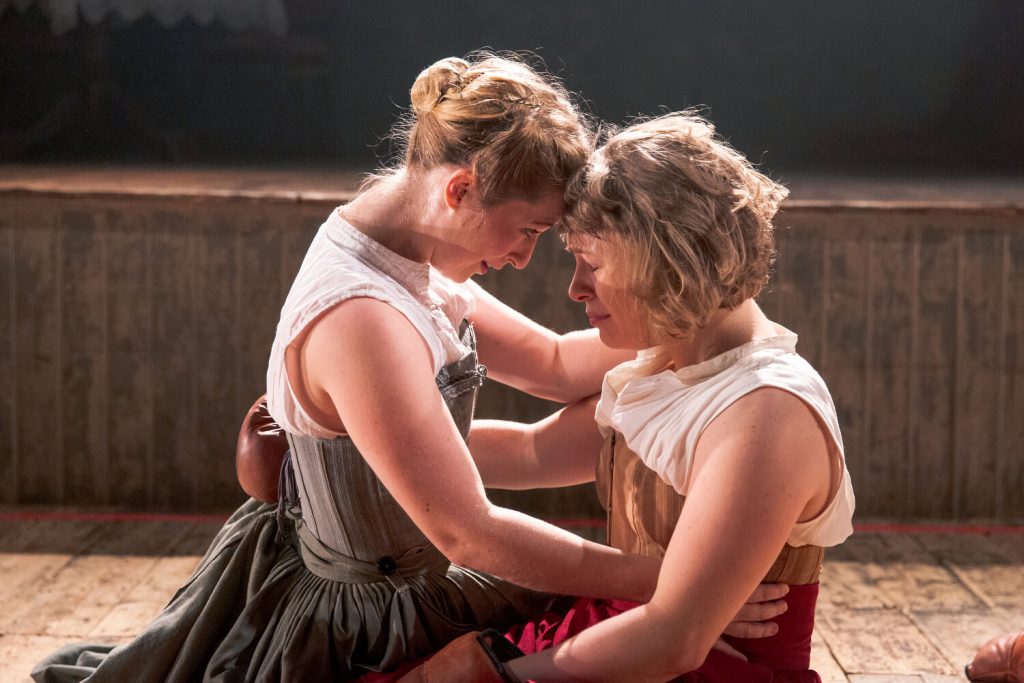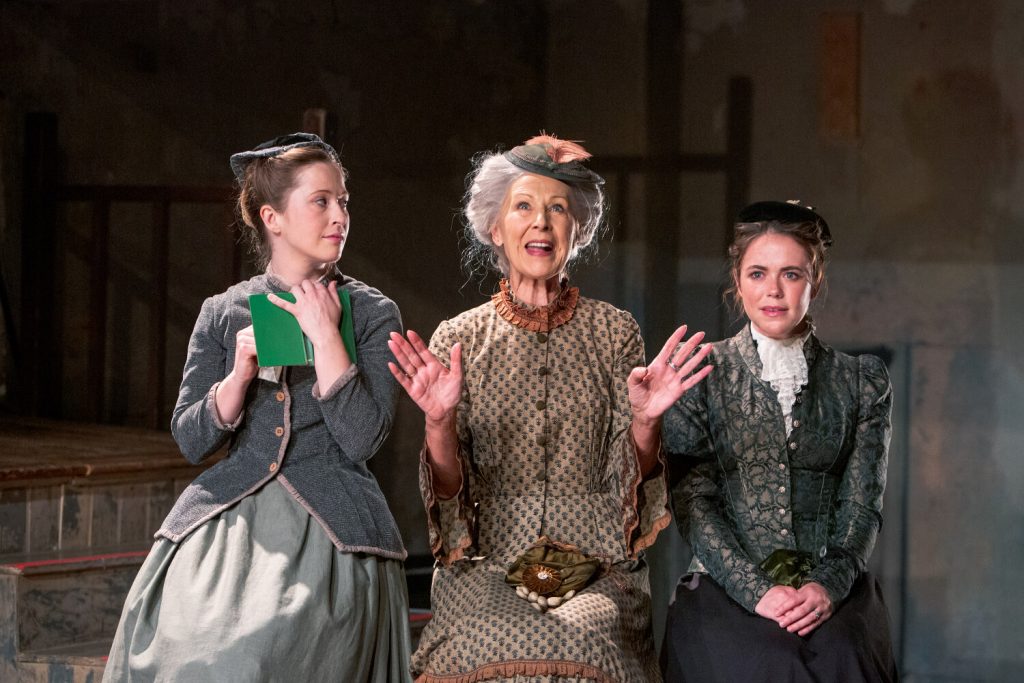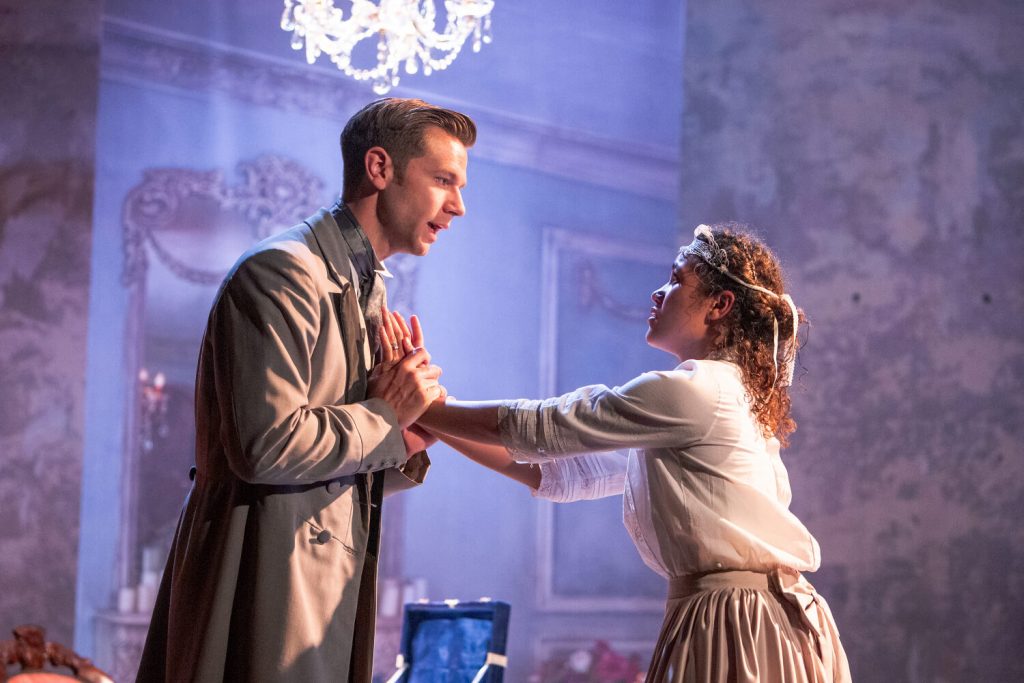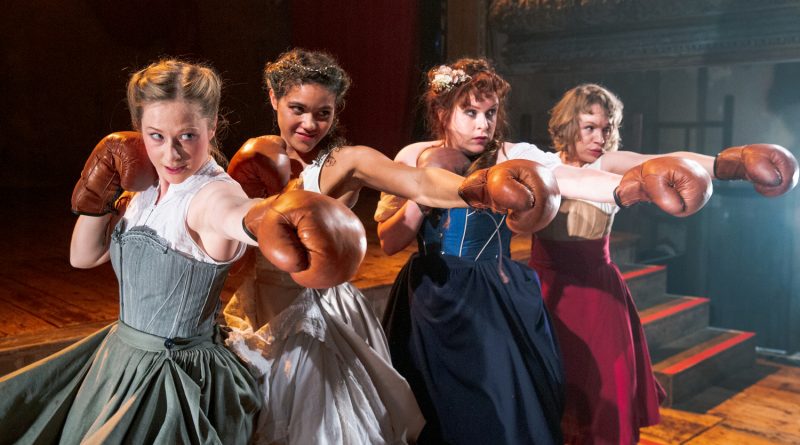Review: ‘The Sweet Science of Bruising’ at Wilton’s Music Hall
Tabitha Potts is a writer who lives in East London, an area which inspires much of her work. She has had several short stories published in print and online.
The Sweet Science of Bruising is an entertaining and moving play that brings together four very different women to tell the story of Victorian lady boxers.
Staged in the period splendour of Wilton’s Music Hall (which was built around the time the play is set), we are introduced to these women’s stories by the charming Professor Charlie Sharp (Owen Brenman), a boxing promoter who spots raw pugilistic talent and brings it to London to polish it up.
He decides to set up a match between feisty Northerner Polly Stokes (Fiona Skinner), an adopted foundling, and her boyfriend (and adoptive ‘brother’) Paul Stokes (Tom Lorcan).
Polly, who is by far the superior boxer, defeats Paul in what was supposed to be a novelty act, and becomes a ‘Champion Lady Boxer’, inspiring other women to follow in her footsteps – and challenge her. Her only weak spot is men. She gives up boxing to support Paul’s boxing career as his wife, only for him to turn on her when he fails to succeed.
Violet Hunter, played with luminous intelligence by Celeste Dodwell, is an heiress, suffragette, and aspiring doctor whose ambition is constantly thwarted by those around her.
Her fiancé, Dr James Bell, a doctor (played by Ashley Cook), is outwardly sympathetic to her feminist beliefs but not supportive. Her Aunt George (Anna Ham, who has some of the funniest lines in the show) draws the line at boxing and refuses to watch her fight.
Violet takes up boxing to prove that women can do anything – but it becomes even more of an obsession when she loses first her financial support from her aunt and then her inheritance.
Matilda ‘Matty’ Blackwell, an Irish prostitute (played with energy and wit by Jessica Regan), is first introduced to us picking up a punter on Piccadilly. She also works part-time as an ink-stained type-setter for the Times newspaper, and quotes Descartes to her bemused customers. She is hired by Sharp to fight Polly but her real strength is endurance rather than aggression – she can take a lot of punches.
Anna Lamb (subtly and sensitively played by Emma Mcdonald) is a wealthy mother who has a terrible secret; her husband, Gabriel Lamb (Wilf Scolding), is abusive and regularly beats her. She becomes suspicious of where he is going in the evenings (he is seeing Matilda) and follows him to the boxing ring where she is inspired by the physical strength of the lady boxers. She trains in secret and eventually joins them in the ring, masked and calling herself ‘The Angel of Death’.
The links between these four women with their very different backgrounds are skillfully set up and their stories are told with great verve as well as pathos. At times, although the play is two hours long, it felt as though some characters’ storylines (Matilda Blackwell’s in particular) could have done with a little more exploration. However, it’s wonderful to see an ensemble play with four female actors in the main roles.
The serious subject of abuse, at the hands of men and also the medical profession, is tackled head on. When Polly gives up her boxing career for love only for Paul to turn on her in one explosive scene, the entire audience gasped.
Another scene explores the history of Victorian medical procedures on women, when one character endures a terrifying operation that is meant to cure hysteria. You will be desperate for these women to succeed by the end of the play, after all the suffering, hard knocks, and setbacks they have endured.
The play explores themes, such as whether women striving for success in a man’s world should put themselves first or try to help other women, which have a very modern resonance. There aren’t easy answers to these questions, and the play doesn’t try to resolve their complexity.
There are also plenty of enjoyably comic moments, particularly in some of the scenes between Aunt George and Violet and in Fiona Skinner’s performance as Polly. The fight scenes are well choreographed, especially in the final climactic fight between the four women as they battle for the title of Lady Boxing Champion of the World. Boxing fans might have enjoyed a little more of the ‘sweet science’ but the boxing action is skillfully interwoven with the drama.
The Sweet Science of Bruising, as the dramatist Joy Wilkinson writes in her introduction, is an imaginative reconstruction of history from a new perspective: ‘whether it’s a true story matters less to me than if there is truth in the story’. It’s a gritty, sharp, and hard-hitting drama which will give you a completely different view of the Victorian lady, with her corset off and gloves on, fighting for her life in the ring.
For more information about days, times, prices and how to book, see The Sweet Science of Bruising event.



If you enjoyed this review you may like our photo essay of a night of boxing at York Hall


